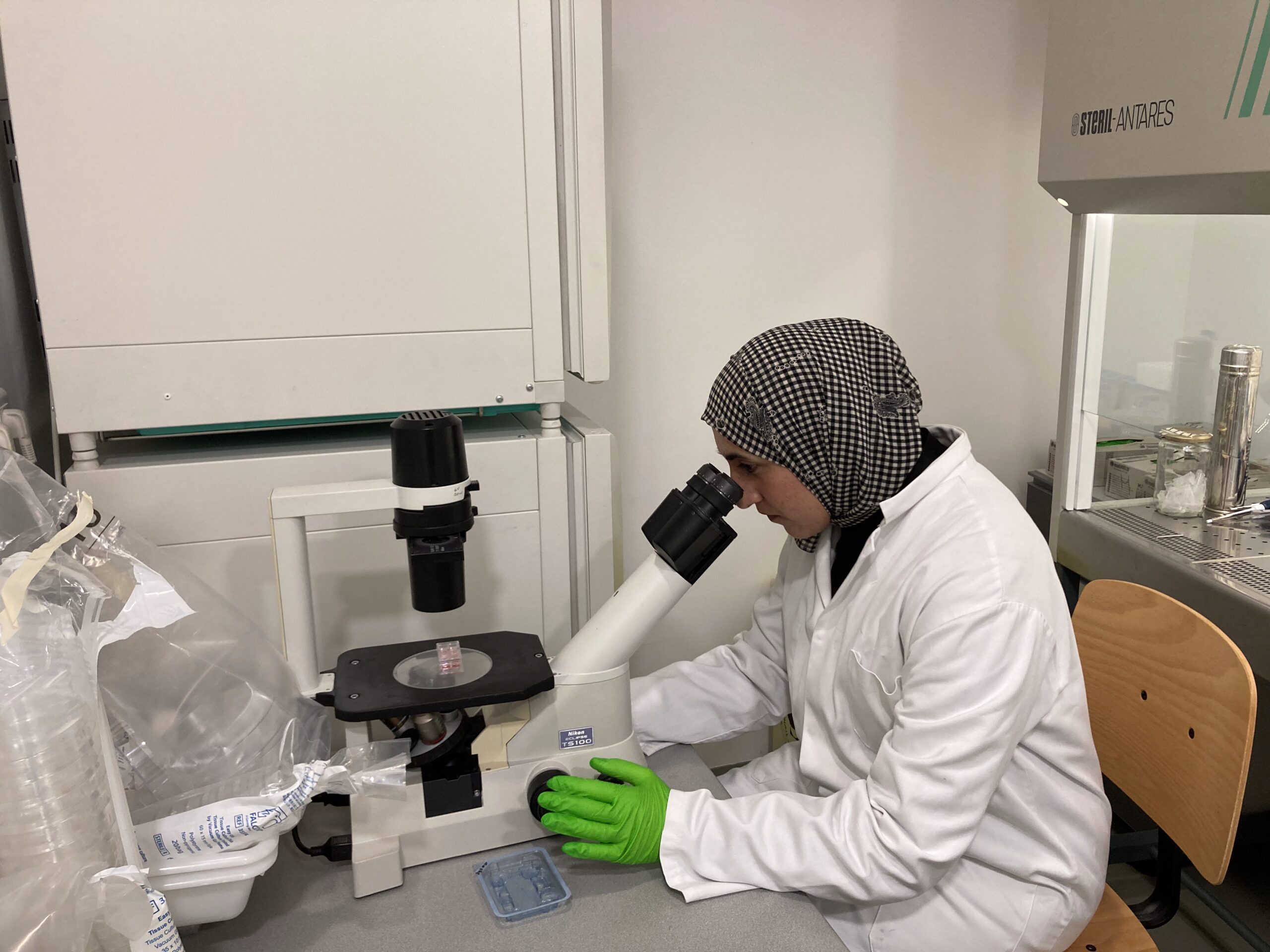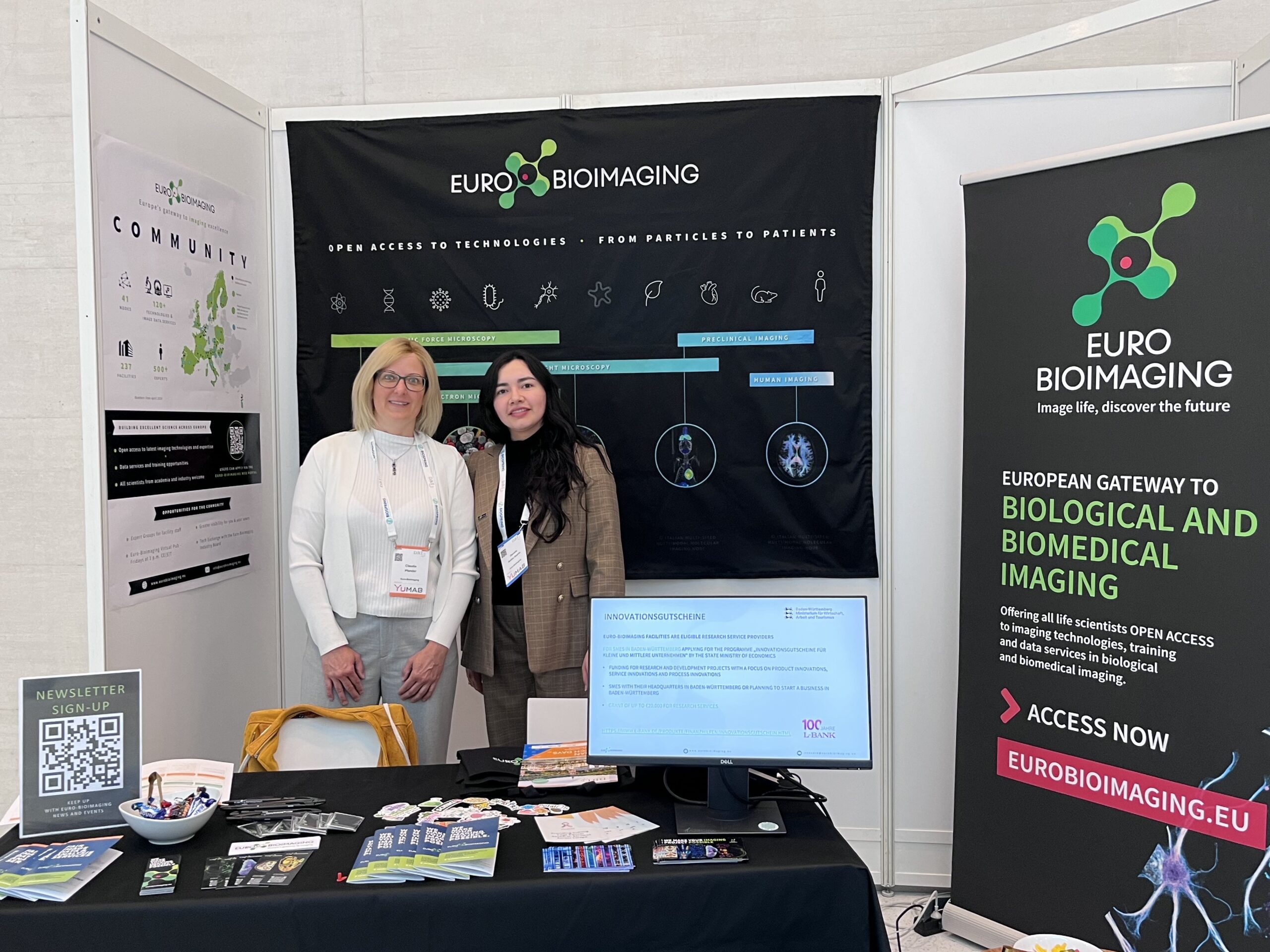
Rafael Camacho: Boosting Smart Microscopy
Automation and artificial intelligence are revolutionizing many sectors, from public transport to medicine. Implementing them in microscopy is referred to as Smart Microscopy. Many scientists from academia and industry are working on this concept, which will drastically change traditional image acquisition methods and experimental pipelines. But before it becomes the norm, a paradigm shift in technology development and experimental design must occur. And that’s what Rafael Camacho Dejay of the Center for Cellular Imaging, University of Gothenburg, part of our Swedish NMI Node, will be working on in the coming years, thanks to a significant grant from the Swedish Foundation for Strategic Research (SSF). We spoke with Rafael Camacho Dejay to learn more about this exciting award and what it means for the future of Smart Microscopy.
“Today, many microscopy experiments are still carried out in much the same way as they were decades ago, where samples are prepared and imaged one by one. But thanks to considerable technological advances in optics and computing in the past decades, there is a move towards AI-based image acquisition strategies. This approach is called Smart Microscopy,” explains Rafael Camacho Dejay. “It’s an idea that has been in the community for a while – it’s being developed by different groups in different locations. But it doesn’t exist as a service yet.”
And that’s where the SSF ‘Research Infrastructure Fellow’ grant awarded to Rafael by the Swedish Foundation for Strategic Research (SSF) in July 2022 will come in. This money – 1.5 Million euros over 5 years - is given to researchers working in Swedish infrastructures who are committed to driving improvements and developing services at their facility. This grant is particularly exclusive – as only research infrastructure that meet the highest international scientific standards are eligible. And in 2022, only seven researchers received the award. Two of these researchers, Rafael Camacho Dejay and Linda Sandblad, of the Electron Microscopy facility at Umea University, are from facilities associated with Swedish NMI, our Swedish Node. And this is not the first time that a researcher from the Centre for Cellular Imaging has been honored with this award. In 2015, Julia Fernandez-Rodriguez was awarded the grant money, allowing the facility to build up a world-class Electron Microscopy offer and furthermore allow for correlative workflows between Light and Electron Microscopy.
Paradigm shift in technology & experimental design
Given the global challenges of the last few years Rafael Camacho and the CCI team have been working with partners from academia and industry on microscopy automation and remote access, which now works as the foundation to develop Smart Microscopy applications. Academic partners include Jean-Yves Tivenez of Institut Pasteur, Robert Haase of TU Dresden and Christian Tischer of EMBL, just to name a few. Collaborations that will continue over the coming years, explains Rafael. “We will not reinvent the wheel.”
“At CCI,” says Rafael, “The early steps towards Smart Microscopy have included acquiring – or modifying - equipment within our facility to ensure remote access. We have connected our machines to image analysis posts and are developing microscopy workflows that use on-the-fly image analysis to continuously monitor the sample, give real-time feedback to the imaging software, and program the microscope to change its parameters during the experiment without human intervention.”
“In addition, we have been thinking about the data challenge: How can we make sure the data is properly organized, pre-processed and transferred to the server? Metadata has to be recorded. Does all data need to be saved? Which data should be kept? What further analysis is needed?” The list is long – luckily the grant money includes funds to hire new team members to help with all of the developments.
Concrete implications
“With the broad user-base we have at CCI, we are in an excellent position to develop new imaging application workflows in close collaboration with advanced users, as well as the microscopy industry and other partners. In the early years of the project, we will concentrate on implementing the pilot projects we identified in the proposal. This will be the first step in developing Smart Microscopy as a service.”
“Over time, we wish to create a highly interactive cell-imaging community, linking together researchers in Sweden and abroad, through sharing resources and expertise. And being part of Euro-BioImaging, is crucial to our ability to do this.”
When the pilot projects will be successfully completed, Rafael and the CCI team will organize outreach and training events, Hackathons and more in collaboration with the National Microscopy Infrastructure of Sweden, SciLifeLab, and international partners. The goal is to build a critical mass of well-grounded users interested in Smart Microscopy. And of course, they want to involve other facilities who want to offer Smart Microscopy as a service.
“This is where being part of Euro-BioImaging is really a plus for us. We really hope that other Euro-BioImaging Nodes will want to be early adaptors for this concept. By working together, we can really take giant steps towards democratizing access to equipment for certain sample types,” concludes Rafael.
Stay tuned for more information as this exciting, revolutionary concept develops!
Website: https://www.gu.se/en/core-facilities/centre-for-cellular-imaging/smart-microscopy
About Swedish NMI
The National Microscopy Infrastructure (NMI), the Swedish Euro-BioImaging Node, is a distributed infrastructure of five specialized, complementary, and interlinked sites located across Sweden: Stockholm, Uppsala, Göteborg, and Umeå. The mission of NMI is to provide access to innovative technologies and competence in microscopy and image analysis to all scientists that have a need for advanced imaging in fundamental and translational biomedical research projects. Within Swedish NMI, the Centre for Cellular Imaging (CCI), part, offers world-class access, service, and expertise to innovative imaging technologies and has vast experience in advanced microscopy imaging, specimen preparation, data processing and analysis to support the needs of users both in academia and industry.
More news from Euro-BioImaging


